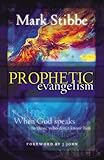This latest addition to the Pillar series of commentaries is reminiscent of O’Brien’s Pillar Commentary on Ephesians in that it has a long introduction (75 pages), which includes a critique of the rhetorical analysis approach to the epistles and defends Pauline authorship. He also explains why he is not convinced by arguments placing 2 Thessalonians before 1 (contra Wanamaker).
However, the bulk of the introduction is spent providing historical background on the city of Thessalonica and tying in the Acts accounts of how the gospel came to that city. Green goes right back to tell the story of how the Romans came to take the region of Macedonia from the Greeks and lists the various uprisings that the Romans crushed. There is also a good deal of information about the religious beliefs and practices of the time.
While it is all interesting, I couldn’t help feeling that some of this material would have been more suited to a New Testament background reference book, or at least interspersed in the commentary as excursuses. However, Green believes that the historical background is key to interpreting the letter, and he does particularly well at highlighting the reasons why the gospel was so badly received when it first arrived in Thessalonica.
The opening chapters of 1 Thessalonians in particular are closely tied in to both Paul and the Thessalonians’ historical and geographical situation. Green fills in the details from Acts, as well as making regular quotations from ancient documents to illustrate his points. Like Edward’s Pillar commentary on Mark, quotes from first century documents are regularly found, while interaction with other commentators is generally left to the footnotes.
The section on the second coming is handled in a level-headed manner, careful not to draw out more than the text says (as is the section on the man of lawlessness in 2 Thess 2). He does not particularly attempt to synthesize with prophetic passages from Revelation, the Gospels or the Old Testament, and only makes the briefest of comments to dismiss some fanciful interpretations of the rapture.
The historical background established in the introduction proves helpful as he seeks to interpret the commands concerning idleness in terms of the patron-client system that was operating in those days. The idle are understood as those who are “disorderly” and are remaining as clients. They are counselled to get out of local politics and live a quiet life, which contrasts with the more common understanding of this passage as being simply a critique of laziness.
I found this to be a worthy addition to the excellent Pillar series, which will serve evangelicals who want to dig deeper into the meaning of the text, but don’t necessarily require great elaboration on contemporary application. As with the other volumes in the Pillar series, the comments are based on the NIV text, while feeling free to question some of the translators decisions, but maintaining a reverent attitude to Scripture throughout.



